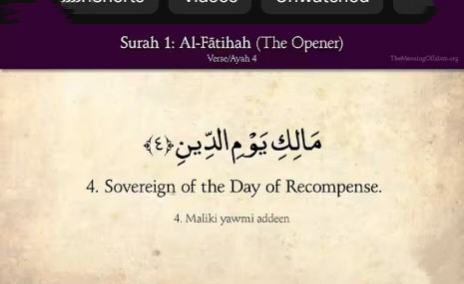1. Overview of Surah Al‑Baqarah (Chapter 2)
Surah Baqarah (The Cow) was revealed in Medina after the Hijrah. It covers:
- foundations of faith, worship, law, and social ethics
- stories of Adam, Abraham, Moses, and Bani Israel
- guidelines for marriage, divorce, finance, fasting etc. (Zakeeya Ali)
It’s often referred to as a “comprehensive manual for an Islamic way of life.”
2. Benefits on Mind & Brain from Recitation
- Reciting or listening to the Qur’an stimulates alpha brain waves and endorphins—similar to calming melodies—which can reduce anxiety, stress, and depression. (PMC)
- Memorization has been linked with elevated BDNF (Brain‑Derived Neurotrophic Factor), promoting neuron growth and mental health. (jmchemsci.com)
- Systematic reviews show improvements in sleep, quality of life, stress scores, especially in patients and pregnant women. (PMC)
Parenting & Children — Verse 177 (piety, charity, patience)
Arabic:
وَلَيْسَ الْبِرَّ أَن تُوَلُّوا وُجُوهَكُمْ قِبَلَ الْمَشْرِقِ وَالْمَغْرِبِ… وَيُؤْتُونَ مَا آتَوْا وَقُلُوبُهُمْ وَجِلَةٌ أَنَّهُمْ إِلَىٰ رَبِّهِمْ رَاجِعُونَ
English:
“Righteousness is not that you turn your faces toward East or West, but [true] righteousness is in one who believes in Allah… gives wealth, despite love for it, to relatives, orphans, the needy… and is patient in poverty and adversity…” (noblequran.com)
Urdu:
“نیکی یہ نہیں کہ تم اپنی طرف مشرق یا مغرب کو مڑو، بلکہ نیکی وہ ہے جو اللہ پر ایمان لائے… اپنے پیارے مال سے رشتہ داروں، یتیموں، مسکینوں کو دیتا ہے… اور تنگی اور بیماری میں صبر کرتا ہے۔”
Application: Encourage parenting with patience, charity, and ethical example.
Husband–Wife Love & Family Peace — Verse 187
Arabic: … وَهُنَّ لِبَاسٌ لَّكُمْ وَأَنتُمْ لِبَاسٌ لَّهُنَّ …
English:
“They (your wives) are a garment for you and you are a garment for them… seek from them that which Allah has ordained, and eat and drink until dawn…” (noblequran.com)
Urdu:
“وہ تمہارے لیے لباس ہیں اور تم ان کے لیے لباس ہو… اللہ کی رضا کے لیے ان سے تمسک کرو… صبح تک کھاؤ پیو…”
Application: Promote mutual respect, emotional support, privacy & harmony.
Protection from Negative Energy — Last 2 Verses: 2:285–286
Arabic (abridged): آمَنَ الرَّسُولُ بِمَا أُنزِلَ إِلَيْهِ… لَا يُكَلِّفُ اللَّهُ نَفْسًا إِلَّا وُسْعَهَا…
English:
“The Messenger believes in what was revealed to him… Allah does not burden a soul beyond that it can bear… Our Lord! Do not impose blame on us if we forget or make a mistake…” (noblequran.com)Urdu:
“رسول ایمان لائے اس پر جو اُنہیں نازل ہوا… اللہ کسی جان پر اس سے بڑھ کر بوجھ نہیں ڈالتا جو وہ برداشت کرسکے… اے ہمارے رب! اگر ہم بھول جائیں یا غلطی کریں تو ہم پر الزام نہ ٹھہرا۔”
Application: Reciting these verses nightly is believed to bring spiritual protection, curb negative influences, and calm homes. (Zakeeya Ali, Noor Institute)
Livelihood & Sustenance — Verse 188 & 219
Arabic: اَلَّذِينَ يَأْكُلُونَ أَمْوَالَ النَّاسِ بِالْبَاطِلِ … يُسْأَلُونَ…
English (2:188):
“And do not consume one another’s wealth unjustly or send it [in bribery] to rulers in order that [one] might sinfully consume a portion of the wealth of people…”
Urdu:
“ایک دوسرے کی مالَ غنیمت ظلمتےے نہ کھاؤ، ناحق بھیجو حاکم کو کہ لوگوں کے مال کا حرام حصہ حاصل کرو…”
Application: Encourages honesty in transactions, generosity, and fair dealings.
Pregnancy & Infertility Guidance
While Surah Baqarah doesn’t directly mention pregnancy or infertility, Verse 187 encourages seeking offspring under lawful relations. The principle of “Allah provides for creation” (2:223 “your women are a field… so approach your field” in lawful ways) suggests trust and healthy intention. There are no direct infertility cures, but general themes: trust in Allah, lawful effort, prayer.
Healing from Illness — Spiritual Context
Though the Qur’an doesn’t prescribe specific cures in Baqarah, verse on remembrance and faith (2:155–157) highlights:
Arabic: … إِنَّمَا يُوَفَّى الصَّابِرُونَ أَجْرَهُمْ بِغَيْرِ حِسَابٍ…
English:
“We will surely test you with something of fear and hunger and loss of wealth, lives etc. But give good news to the patient, who when afflicted say: ‘Indeed we belong to Allah and to Him we return.’” (noblequran.com)
Urdu:
“بے شک ہم تمہیں بھوک، خطرہ، نقصان میں آزمائیں گے… صبر کرنے والوں کو یوں خوشخبری سنا دو کہ وہ کہتے ہیں: ‘ہم اللہ ہی کے ہیں اور اسی کی طرف لوٹ کر جانا ہے۔’”
Encourages patience, faith, prayer in suffering all illnesses.
4. How to Apply These Lessons in Modern Daily Life
- Recitation routine: Recite Surah Baqarah regularly—even in parts—especially the last two verses before sleep.
- Parenting: Emphasize values over strict discipline: charity, patience, teaching by example.
- Marriage: Communicate, share rights & responsibilities, treat spouse as “garment” (cover, closeness).
- Financial life: Be fair, avoid interest and bribery; share charity; uphold ethical business.
- Wellbeing: Use recitation as a stress‑relief practice, akin to meditation—a scientifically supported method to calm the mind.
- Life challenges: Cultivate sabr (patience), tawakkul (trust in Allah), and community support.
5. Parallels in Other Religious Books
- Christian Bible: Proverbs 22:6 (“Train up a child…”) corresponds to parenting guidance. Love and marriage are extolled in Ephesians 5, focusing on mutual respect and sacrificial love, similar to Qur’an’s emphasis on harmony.
- Jewish Torah: Laws about honesty, fair contracts, caring for orphans and the poor echo Surah Baqarah’s ethical codes.
- Many faith traditions highlight charity, patience in suffering, faith as means to peace—virtues shared across scriptures.
📝 Final Summary
Surah Baqarah is a powerhouse of guidance covering faith, family, finance, ethics, and resilience. Reciting it calms the mind, uplifts mood, and promotes clear thinking via brain‑wave and hormonal pathways: stress reduction, mood regulation, and cognitive improvement. It addresses parenting, marriage, livelihood, illness, and more through timeless principles—patience, charity, lawful living, mutual love, and reliance on Allah.

